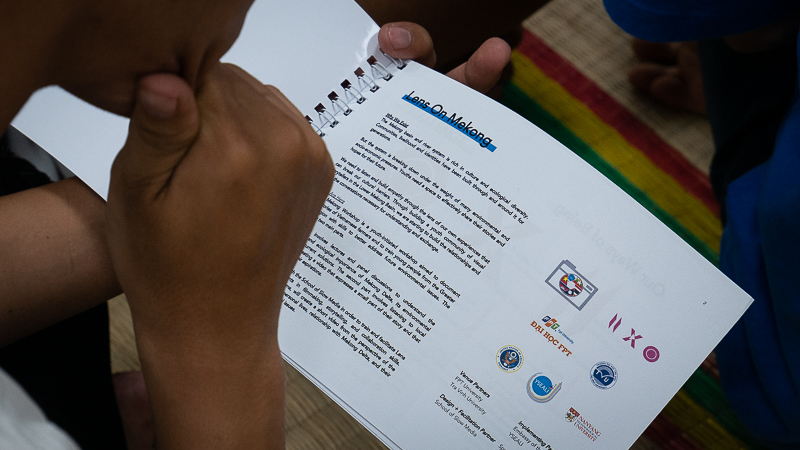Photos by Ha & Amiel
“It’s God’s will,” said the farmers.
They knew something was shifting in the climate. They adapted to the situation; but felt powerless to do anything to about it.
I wondered: Why are farming families still resistant to certain climate initiatives? What happens to farmers who aren’t successful at converting to shrimp farms? And, how can we convince farmers to care about climate change when they can’t afford to adapt when a particular initiative goes poorly for them?
These were the questions that arose when we, the School of Slow Media, along with 12 other young leaders, were present on the ground with local farmers in the Mekong Delta this February 15 - 17, 2019.
At the end of last year, Lens on Mekong—a group inspired to capture stories of climate change based on a recent YSEALI conference—approached us with a powerful idea: Could the School of Slow Media help them train young leaders in the region to capture stories of climate change from a human-centered storytelling perspective?
We said yes and a few months later I found myself helping to co-host a workshop with support from the FPT University in Can Tho and Tra Vinh University. The workshop focused on a vulnerable community in the Mekong Delta where young leaders from ASEAN produced, filmed, and created stories of farmers’ perspectives on what was happening in their lands.
Often, climate change narratives can look for easy, marketable solutions. Convert rice fields to shrimp farms, recycle old plastic, stop using straws. But this simplistic IF-THEN narrative breeds a lack of understanding of the full picture. It makes us believe there’s only one solution and it’s all we need to do to stop climate change, without taking into account the social, cultural, and belief systems around more complex and interweaving issues of economics, psychology, and ecology.
I come from a background in the natural sciences, so I used to think I knew all there is to know about combating climate change. The causes, the processes, the effects — essentially, the “facts.” While these facts are important, there was a human dimension missing in my old approach. Here at SoSM we begin with human-centered storytelling at the heart of our work. What we sought to understand from the farmers was their relationship to their lands and to their environment. In considering their perspective, we were able listen to them completely.
The following video is one of the 5 videos that were made over 3 days by participants, during the Lens on Mekong program that SoSM was invited to co-design, train and facilitate.
Exit out of other tabs, put on headphones, and take a moment to listen deeply to Mrs. Nam’s story.
Find more of these human stories at our Vimeo.









